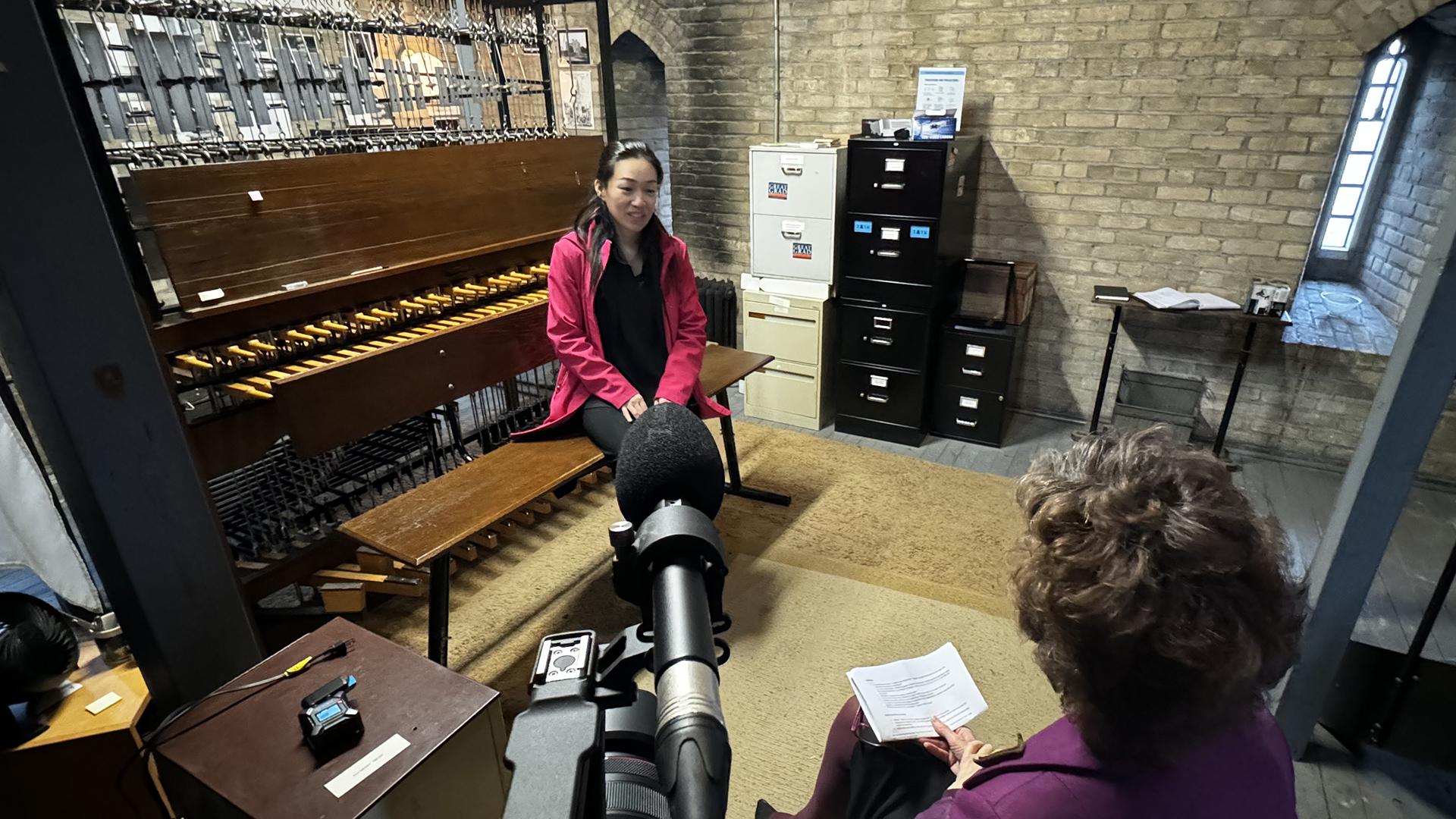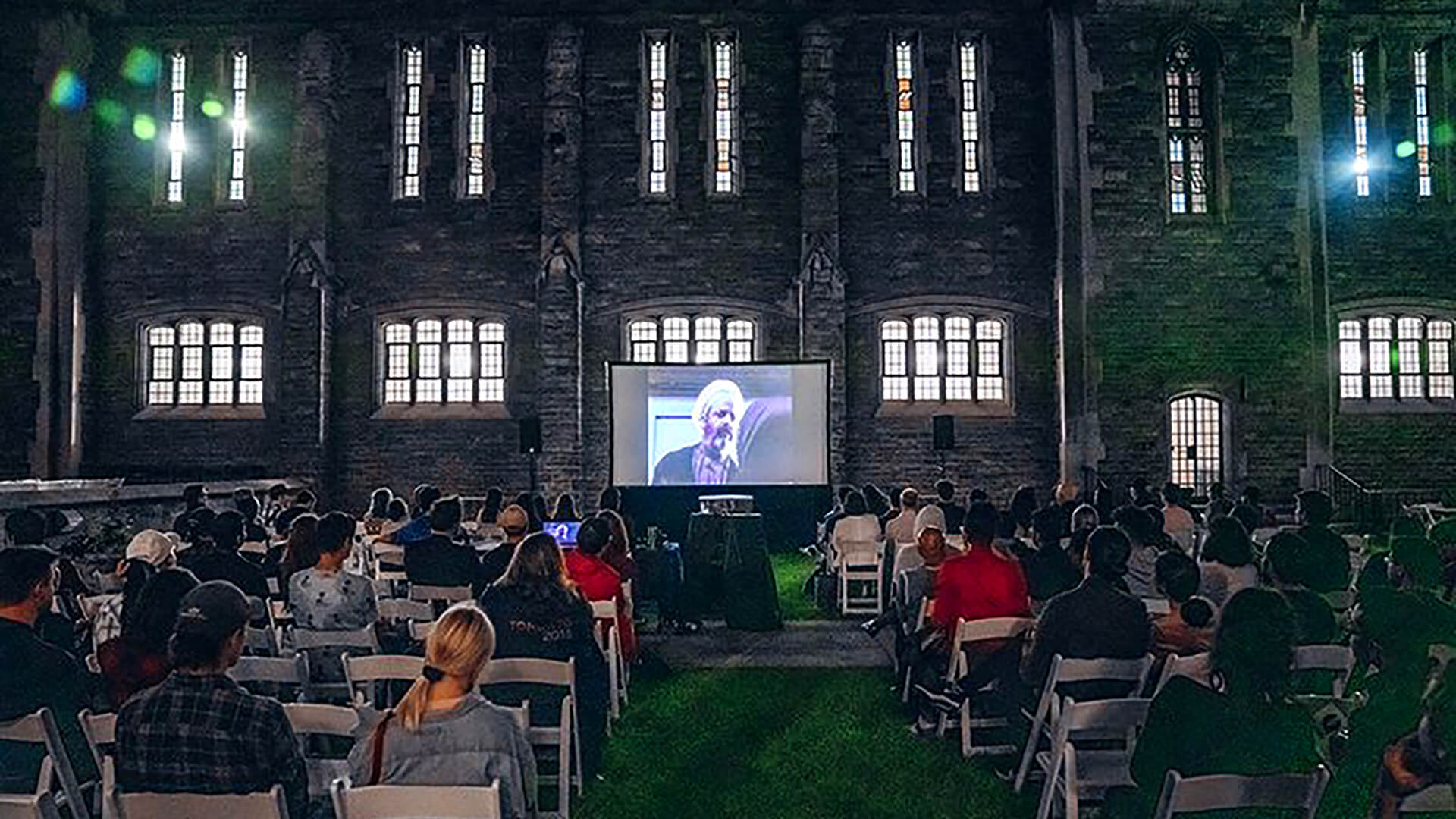
Featured blogger and Hart House staff member Alain Latour discovers that Write Now workshops do much more than entice you to put pen to paper.
What if I told you there’s a place and time in this university for you to write crap?
A place where you don’t have to censor yourself, think, or even show the fruits of your labour to your instructor?
That place and time are occupied by a workshop called Write Now. Developed by the Academic Success Centre, the Multi-Faith Centre, Hart House, and Ronna Bloom, a writer, teacher, and psychotherapist, this workshop has become the safe space where many students de-stress and meet like-minded people, all while they improve their writing skills.
“It’s an experience unlike any other. Students can explore what matters to them,” says Ronna during a phone interview.
Poet in Community at U of T since 2008, Ronna leads workshops through Student Life, as well as within the faculties of Nursing, Medicine, Nutrition, and through various colleges. She also offers unusual encounters with poetry, such as The Spontaneous Poetry Booth where she will write you a poem on the spot for $1.
Write Now workshops, however, are not necessarily designed for students who are interested in poetry or even writing per se. Ronna is quick to point out that writing here is used to explore experiences, and not something to be practiced like in an ordinary writing class.
That’s because at its core, Write Now workshops are an exercise in free-writing, a technique that can help you overcome periods of apathy and self-criticism, among many other benefits.
“The sessions help you be mindful of your own thoughts,” says Lauren Peat, a Write Now mentor and a fourth year student doing a BA in English, French and Philosophy.
Shannon Page agrees. Another Write Now mentor and a postgrad student pursuing a Master’s in English Creative Writing, she adds that free-writing is a powerful de-stressing technique. As a side bonus, “it also helps you get over the fear of putting words on a page, so it’s good for students to struggle to write.”
I experienced some of these benefits myself during this week’s Write Now workshops. Shannon and Lauren began by outlining what they call the Five Rules of Writing:
- Keep your hand moving
- Don’t think
- Don’t censor
- You’re free to write crap
- You don’t have to share
Next, they stated a theme to the participants. (This week, the theme was “Will the real you stand up?” Themes vary from one week to the next and see posted on a public Facebook group.) We were then asked to free-write for seven minutes.
In the beginning, I found the experience difficult, although it helped that you’re allowed to write gibberish, or even things like “I can’t think of anything” over and over again.
Once in the midst of it, though, I realized this was an extremely cathartic experience. Something seemed to take over, controlling my hand and letting all kinds of feelings pour onto my legal pad. I ended up filling five pages with writing that I later found to be almost indecipherable.
Once we were done, Shannon and Laura invited us to share what we wrote, or if we preferred, what the experience of free-writing felt like. They repeated no one had to share anything if they didn’t feel like it.
“It’s important that we honour the direction in which each session is heading,” Shannon tells me later, during our interview.
“Sometimes everyone shares what they wrote. Sometimes nobody does. Either way, it’s no problem at all.”
In this week’s session, all five participants share some of their writing, including me. A French student warns us he wrote something awful, then proceeds to read a beautiful, rhythmic passage.
An engineering student says she can’t express her thoughts on paper as imaginatively as the others. “Maybe engineering and science did this to me,” she says.
Our writing is met with no corrections, criticism or, for that matter, suggestions. Praising our efforts, the mentors continue the session with more writing prompts and free-writing exercises.
Slowly, I feel a certain sense of intimacy surround us all. A few of the participants share things about themselves—things that I don’t think they’d share with many other people. Judging from their expressions and their words, they all find the workshop as cathartic as I do. By the time I return to my office, I’m in an excellent mood. I spend the next two hours making jokes, much to the annoyance of my coworker.
According to our own website, Write Now offers “a supportive and stress-free environment to explore creative and reflective writing. Free from the pressure of evaluation, sessions are aimed at spontaneity and bringing your whole self to school. The space is transformed each week by the people in the room and whatever they create individually and together. Writing is the vehicle, and the experience is the destination.”
I couldn’t agree more.
If you feel like enjoying a unique experience, all while you de-stress, meet other students, and learn to silence the inner critic that makes writing a paper more difficult that it should be, then I highly recommend you give Write Now workshops a try.



